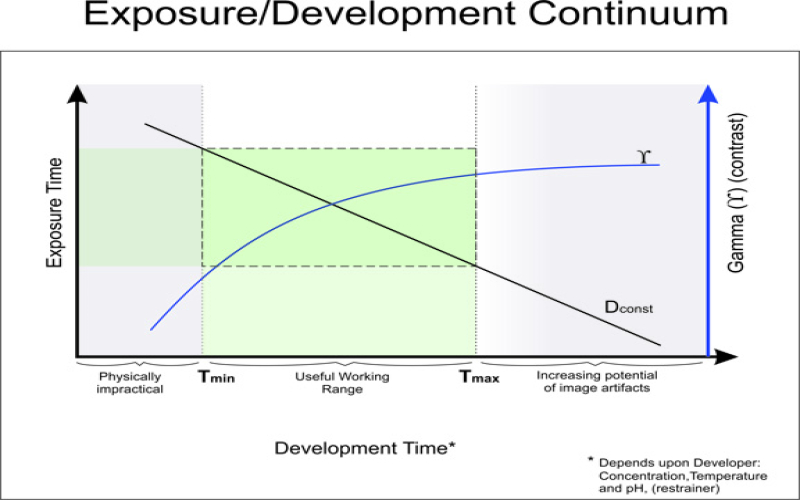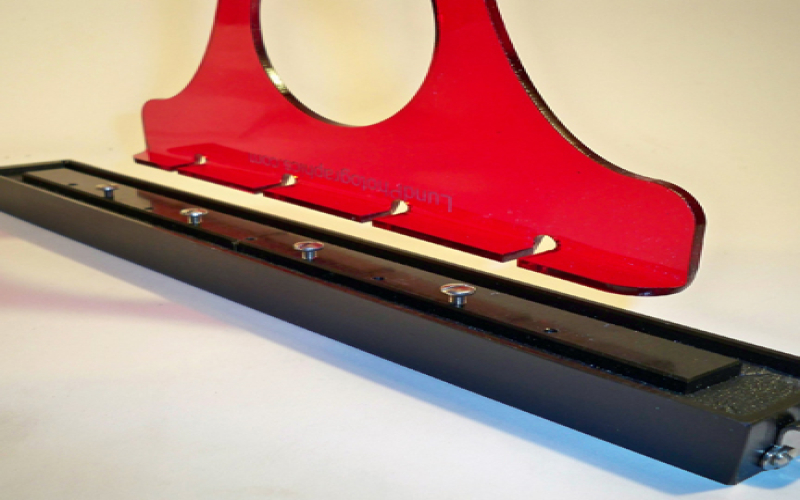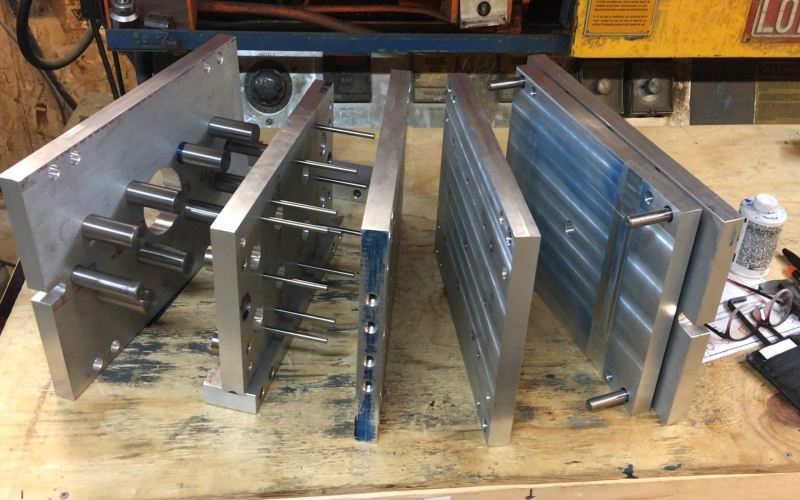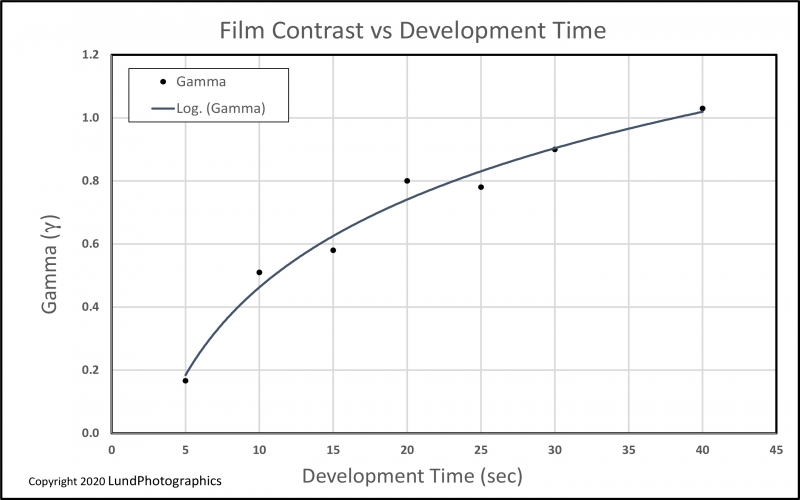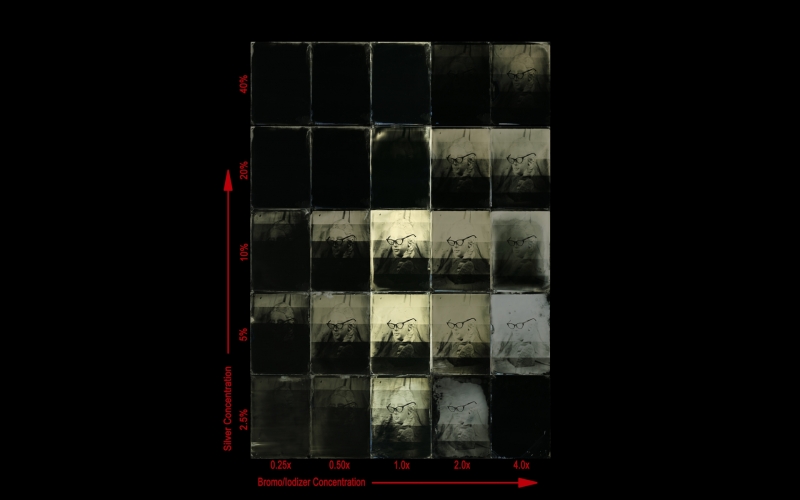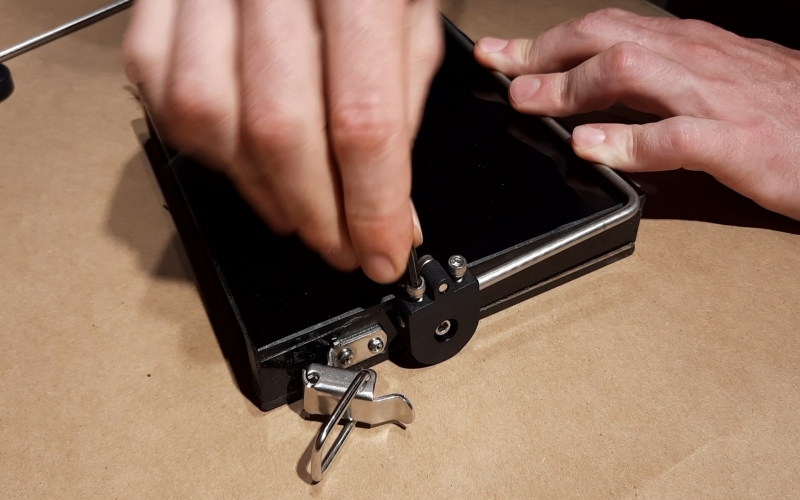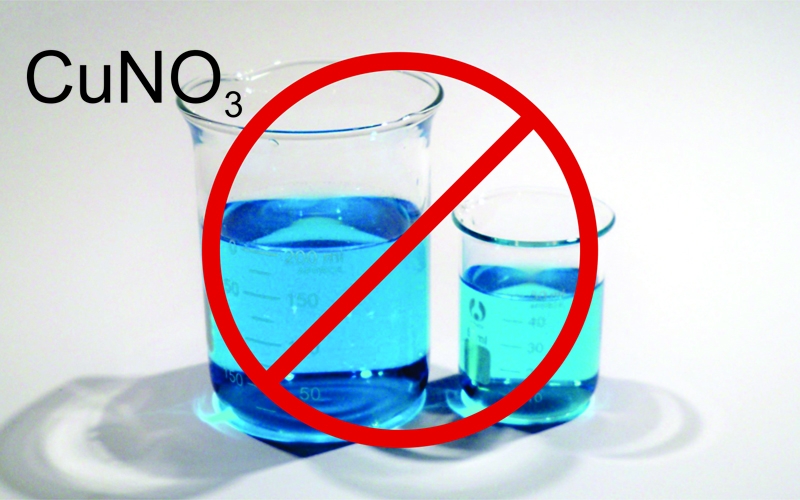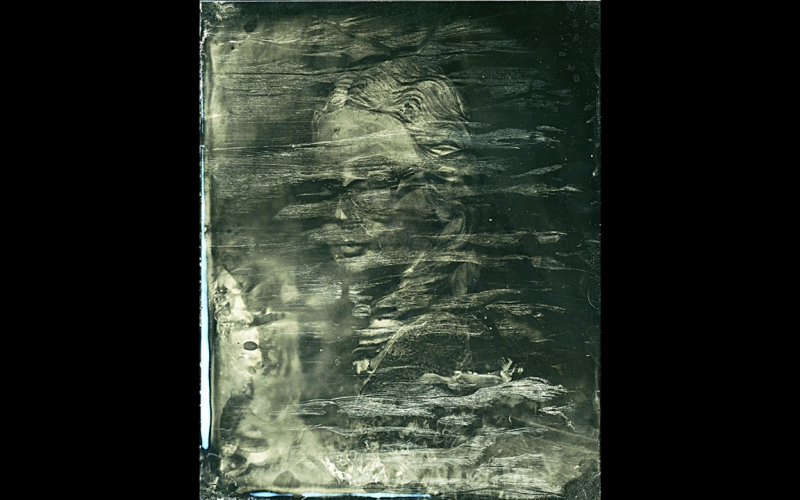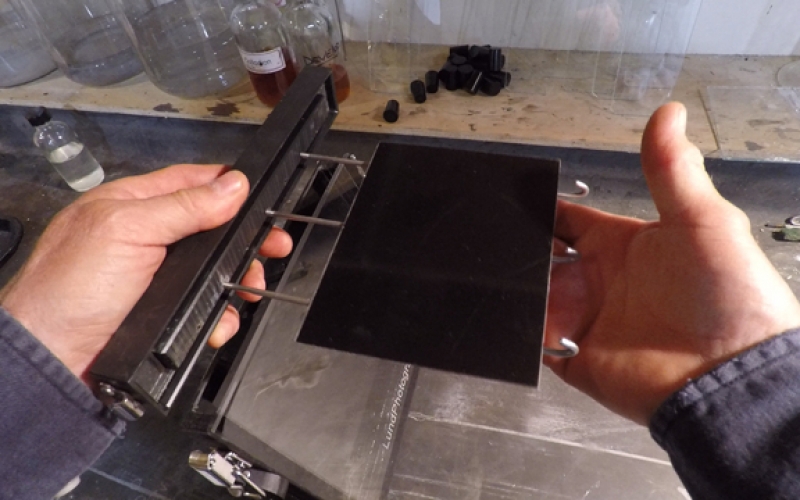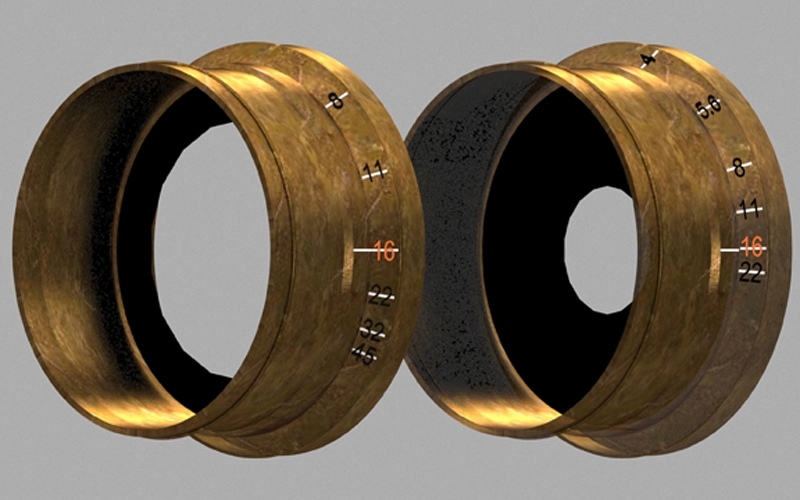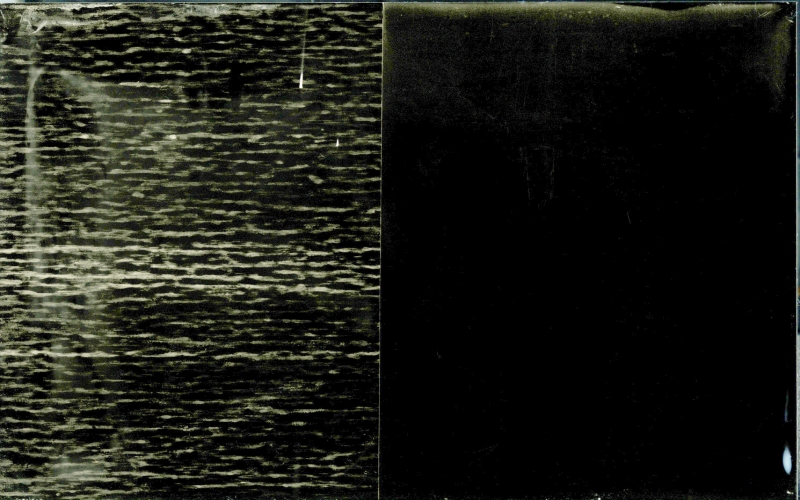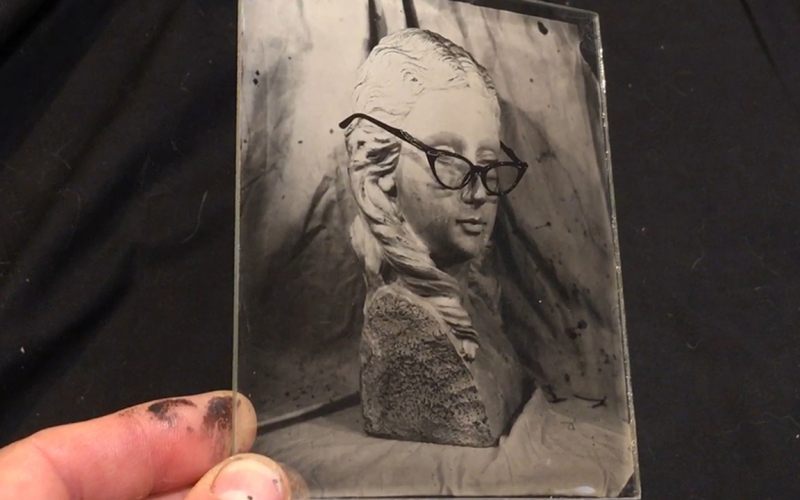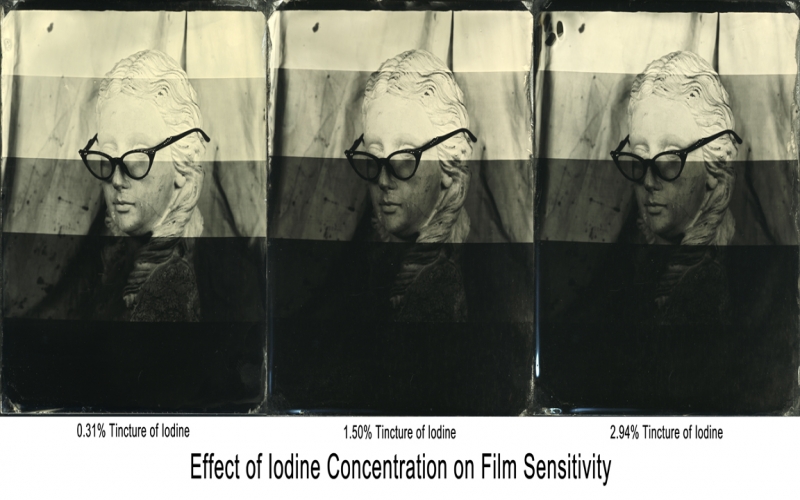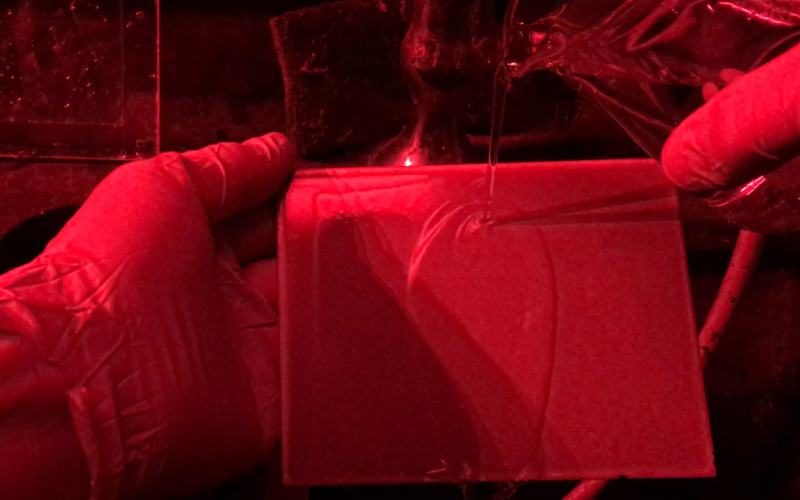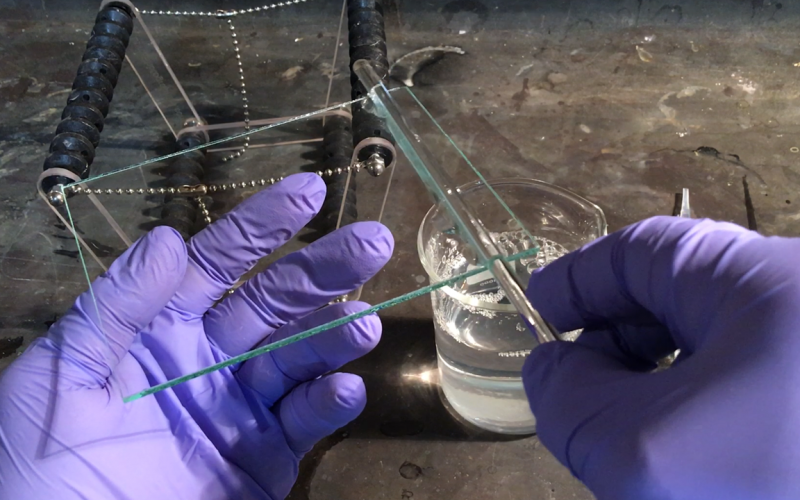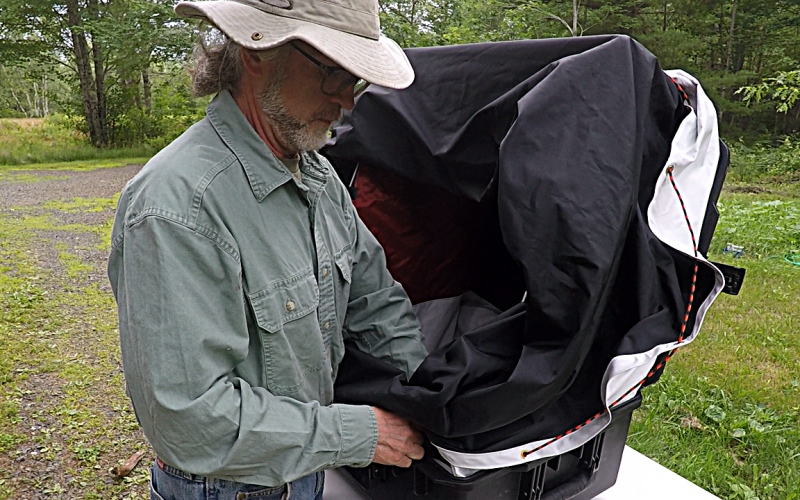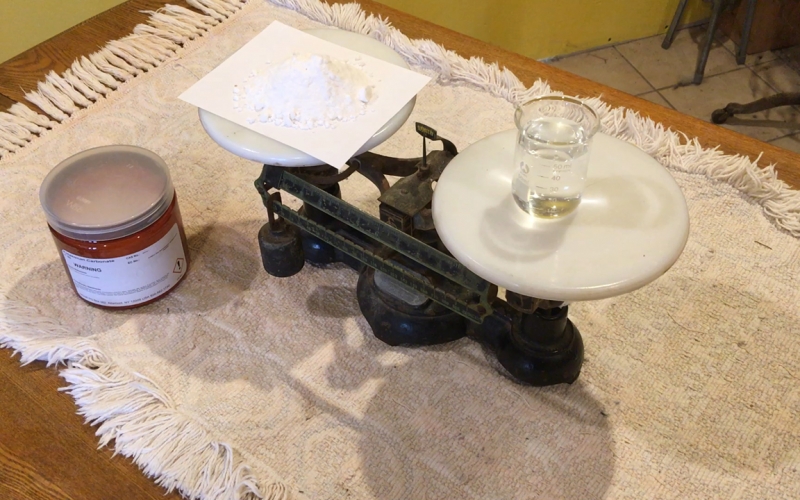Development, Exposure, and Contrast
Over the years since silver halide photography was first discovered, photographers have identified a handful of relationships between exposure, development, and image contrast that have become...
Installing Traveling Tank Plexi Paddles
Instructions for retrofitting your traveling tank lid with a plexi paddle.
Development Time and Contrast
Development time is the control for image contrast in wet plate collodion photography. In this blog, we'll show you how to calibrate your film exposure and development to gain consistency and control...
Bromo-Iodizer and Silver Nitrate Concentrations
In this video, we examine how varied concentrations of bromo-iodizers in the salted collodion, and silver nitrate concentrations in the silver bath affect the quality, processing robustness, and...
Replacing/Upgrading Traveling Tank Brackets
Here's a short video explaining how to upgrade/change your traveling tank stand brackets.
How Not to Poison a Silver Bath
component of the wet plate process, it's worth familiarizing yourself with some of the usual suspects that could produce the unwanted troubles associated with chemical poisoning of silver...
Silver Nitrate Sensitization Time
What is the proper amount of time a plate needs to spend in the silver bath? Clearly, there's a lower limit to this time, when the reacting chemistry hasn't had enough time to form the light...
Using Wire Dip Tank Hangers
Over the years, we've had lots of questions about using wire plate hangers in the traveling tanks. Here are some helpful hints...
Understanding f-Numbers
What are f-numbers and why do we use them to describe lens aperture openings? In this video we'll explore how f-numbers work, where they came from, and why they're so useful.
Troubleshooting Tin Artifacts
There's been a lot of chatter out there over the years about image artifacts that appear on tin. The simplistic response is to blame the tin, but this, in fact, is only a small part of the story...
Making Ambrotypes
An ambrotype is essentially a tintype on glass. The major difference is in the preparation of the glass that will receive the collodion.
Collodion Ripening
I'm sure you've heard that it's important to wait for a week or so before using newly mixed collodion. "It needs to ripen", they say. Well, what is this "ripening" thing anyway? And how do we know...
Image Forming Silver
Have you ever wondered where the silver comes from that forms the wet plate image?
Portable Darkroom Setup: The Sequel
An updated description of how to set up a LundPhotographics portable darkroom.
Chemistry of Development
From practical observation of the development process, we know that developing agents are able to reduce a latent photographic image to metallic silver

